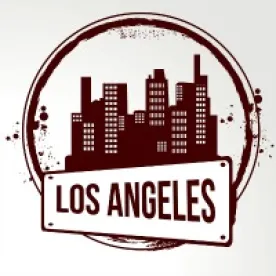Los Angeles County has announced new “safe at home” policies that restrict residents’ movements and certain businesses’ operations as a critical intervention to curb the spread of the coronavirus disease 2019 (“COVID-19”) in the county. On Thursday, March 19, 2020, Los Angeles County issued a “Safer at Home Order for Control of COVID-19” order (the “Order”). The Order, which amends and supplements the county’s previous order issued on March 16, 2019, provides additional restrictions on public and private gatherings and closes additional nonessential businesses to curtail the further spread of COVID-19. These directives apply to all cities in Los Angeles County except the cities of Pasadena and Long Beach. The Order went into effect at 11:59 p.m. on March 19, 2020, and continues through April 19, 2020. The Order outlines criminal punishments for failure to comply with the Order, including misdemeanor violations punishable by imprisonment, fine, or both.
The Order implements new guidelines restricting social interaction among individuals. First, the Order prohibits all public and private events and gatherings where at least 10 people are expected to be in attendance at the same time. This prohibition applies to both indoor events and gatherings and outdoor gatherings that are held within a confined space. Specifically, the Order defines “[e]vents and [g]atherings” as “any gathering, assembly, event, or convening that brings together or likely to bring together 10 or more persons at the same time in an indoor or outdoor confined or enclosed space for greater than 5 minutes, for any purpose, including a business, cultural, athletic, entertainment, social or other special event.”
For any gatherings that are not prohibited (i.e., gatherings where two to nine people are in attendance) and for any essential businesses still in operation, the Order requires the organizer, owner, manager, or operator of that business or gathering to implement strict infection control precautions. Specifically, the precautions include: (1) practicing social distancing within the confined space by requiring attendees to be at least 6 feet apart, if feasible; (2) providing access to handwashing facilities with soap and water, or hand sanitizer that contains at least 60 percent alcohol; (3) posting signs restricting members of the public from entering or attending if they are experiencing symptoms of respiratory illness, including fever and cough; and (4) adhering to the communicable disease control recommendations provided by the Los Angeles County Department of Public Health (accessible here). The Order does not prohibit any individual or family from outdoor activities such as hiking, walking, or shopping at essential businesses (including grocery stores and restaurants offering delivery or takeout services), so long as these social distancing protocols are implemented.
The Order also imposes temporary restrictions on the operations of several business entities within Los Angeles County. The Order requires immediate closure of all nonessential retail businesses, all indoor malls, shopping centers, playgrounds not located within childcare centers, and other nonessential businesses. As with the county’s prior order, essential businesses are to remain open and enforce the social distancing rules listed above. Any essential businesses that are located in a shopping center or indoor mall may remain open if they are accessible to the public from the exterior of the mall or shopping center, but the interior access to such businesses from the mall must remain closed. Essential businesses and operations that are exempt from the closures include, for example, health care operations, infrastructure-related operations, and other businesses, including grocery stores; restaurants that provide food for carryout, delivery, or drive-thru; businesses that provide food and shelter for the economically disadvantaged; newspapers, television, and radio; gas stations; banks; internet and telecommunication systems; manufacturing and distribution companies that are necessary for the essential infrastructure supply chain; businesses that supply other essential businesses with supplies or support; hotels; airlines; private transportation providers; logistics businesses; and delivery services, among others. A link to the Order, which includes the exhaustive list of the kinds of essential businesses and operations that may remain open for service, can be found here.




 />i
/>i

